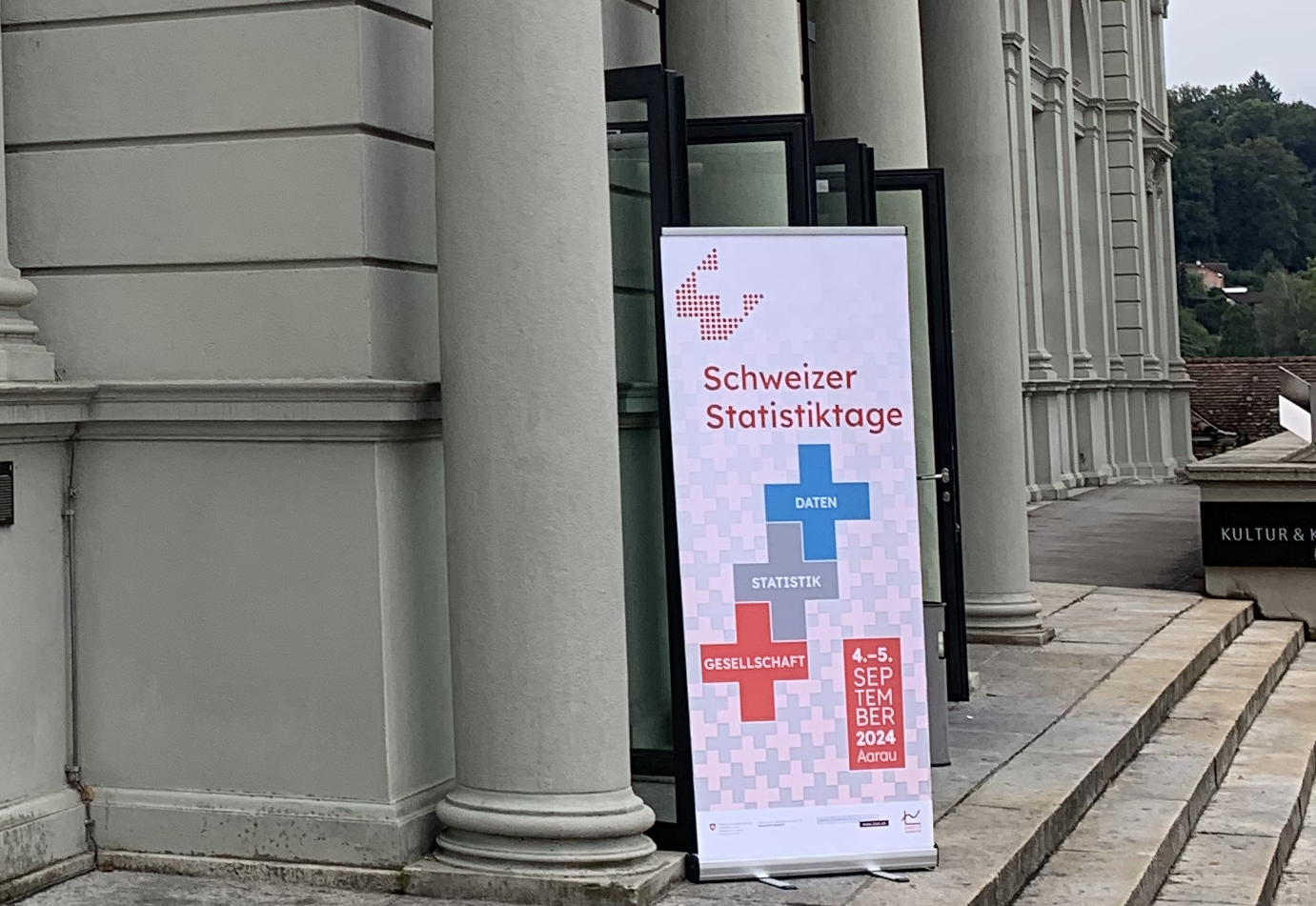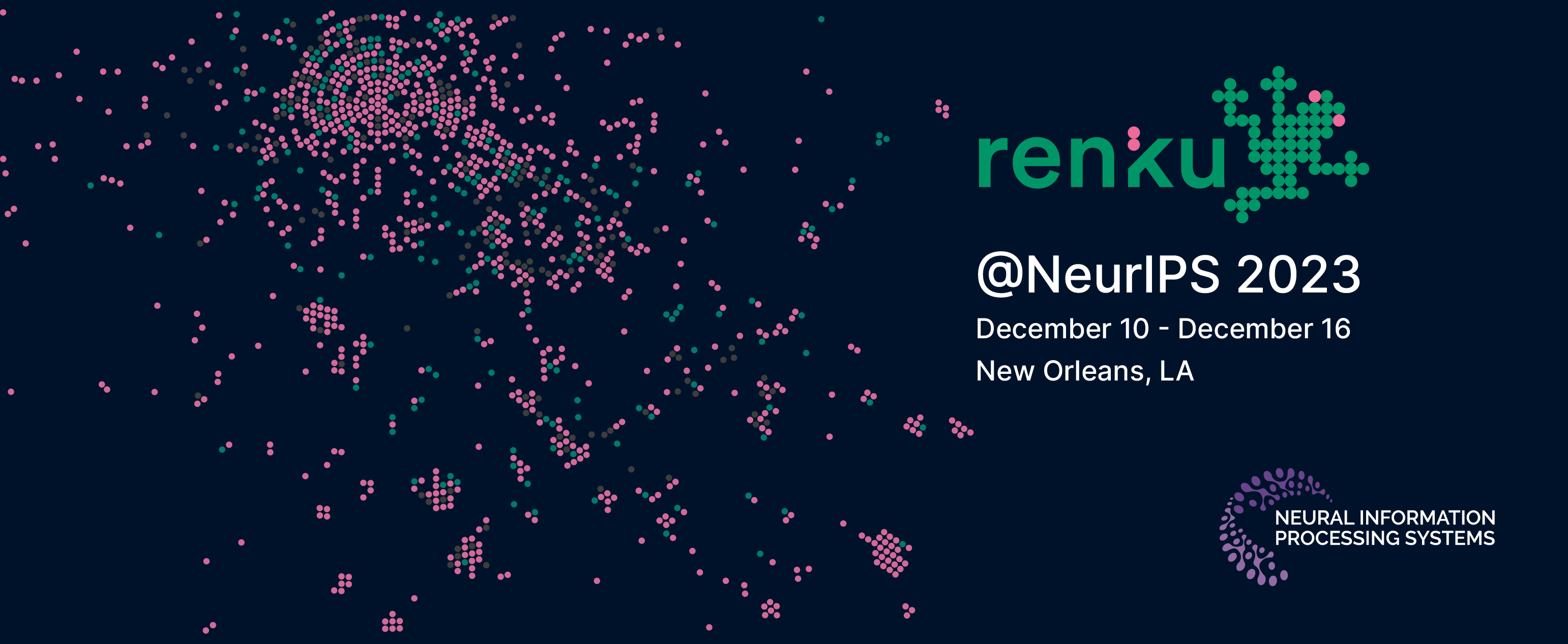Renku 2.0 Launch Event

Don't miss this opportunity to learn more about Renku 2.0, its roadmap and the plans for Renku Legacy (Renku 1.0).

Don't miss this opportunity to learn more about Renku 2.0, its roadmap and the plans for Renku Legacy (Renku 1.0).
This month has been jam packed with new Renku features! Here are the highlights of the ones we're most excited about to help you collaborate in research and teaching.
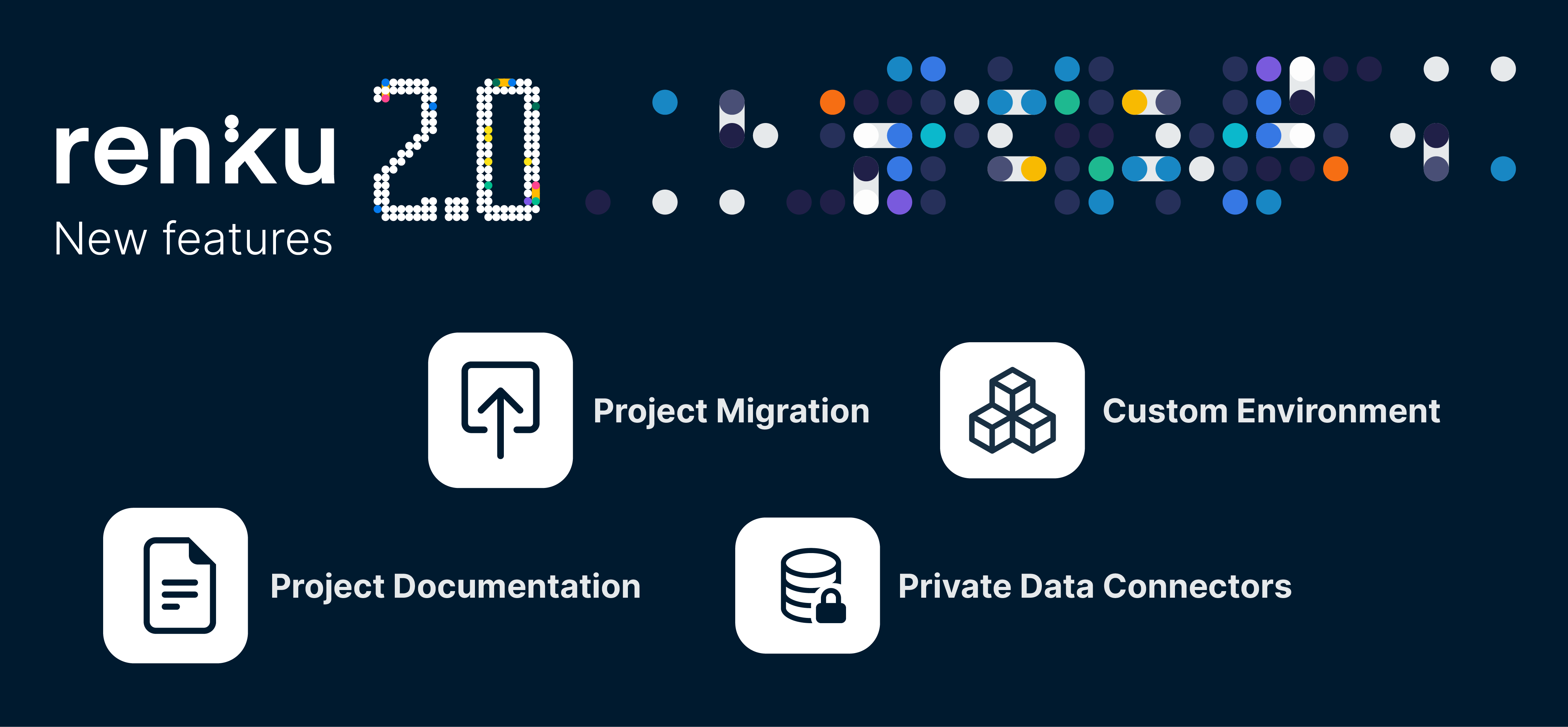
Need a specific set of packages in your Renku session? Now you can customize exactly what's
installed in your session with Renku-built environments. Simply connect a code repository containing
a file with your project dependencies (e.g. an environment.yml), and let Renku build your session
environment (aka docker image) for you!
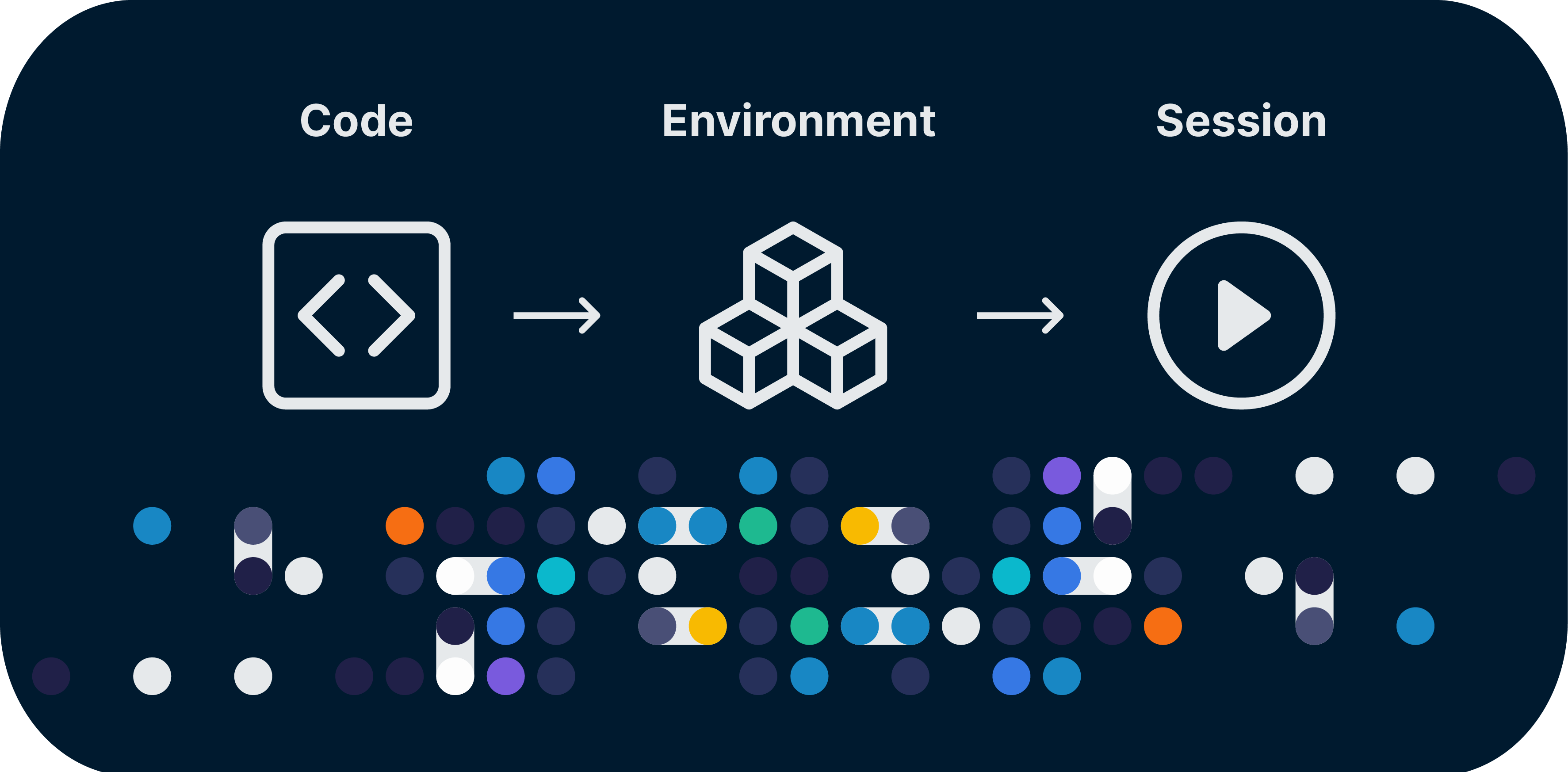
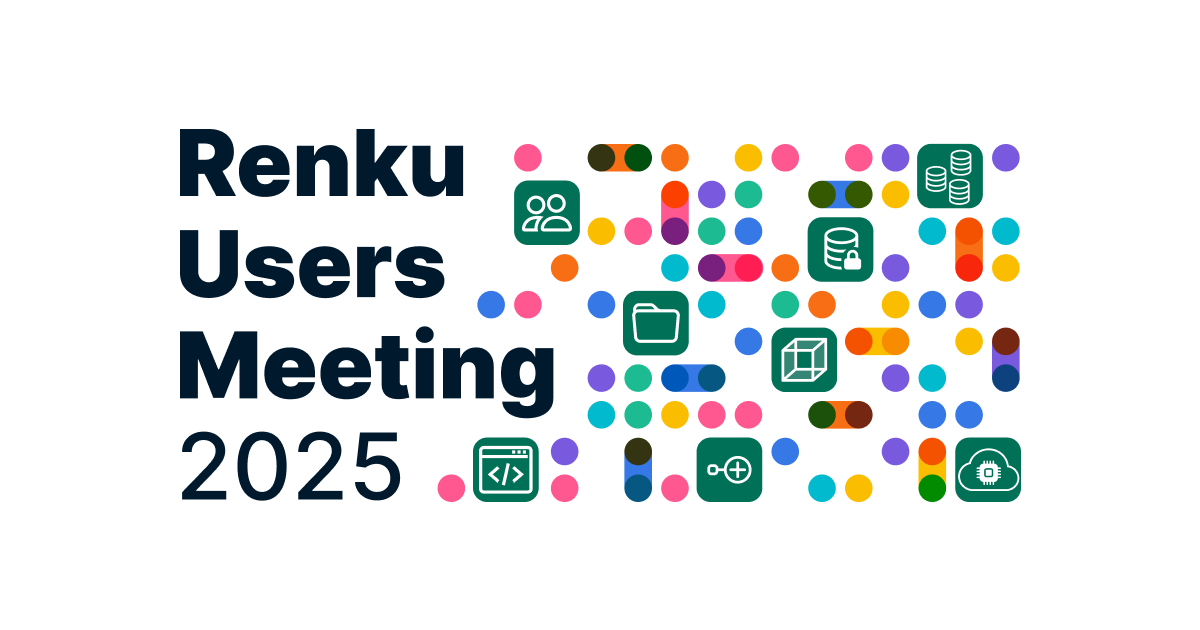
Join the 3rd Renku Users Meeting to learn more about Renku 2.0 and how others leverage Renku for research and teaching.
The wait is over! After a year of dedicated work and six months of testing in beta, Renku 2.0 is now open for Early Access. This means our entire user community is invited to explore the new and improved version of our open-source collaborative computing platform. Whether you're a seasoned Renku user or new to the platform, Renku 2.0 offers exciting possibilities for your research and teaching.

Are you a seasoned Renku user who is curious to know the key differences between Renku 1.0 and 2.0? Here's a summary of what's new.
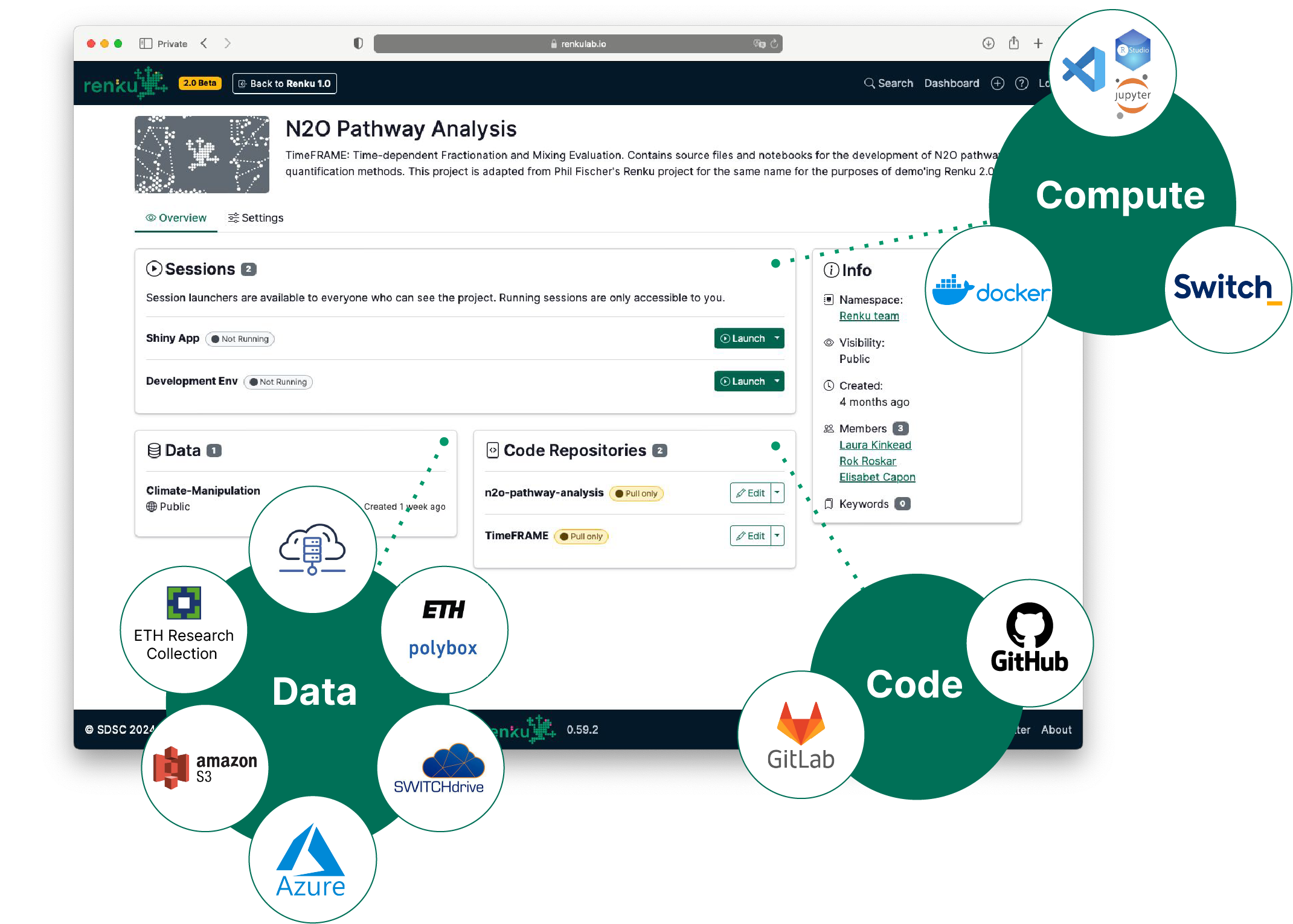
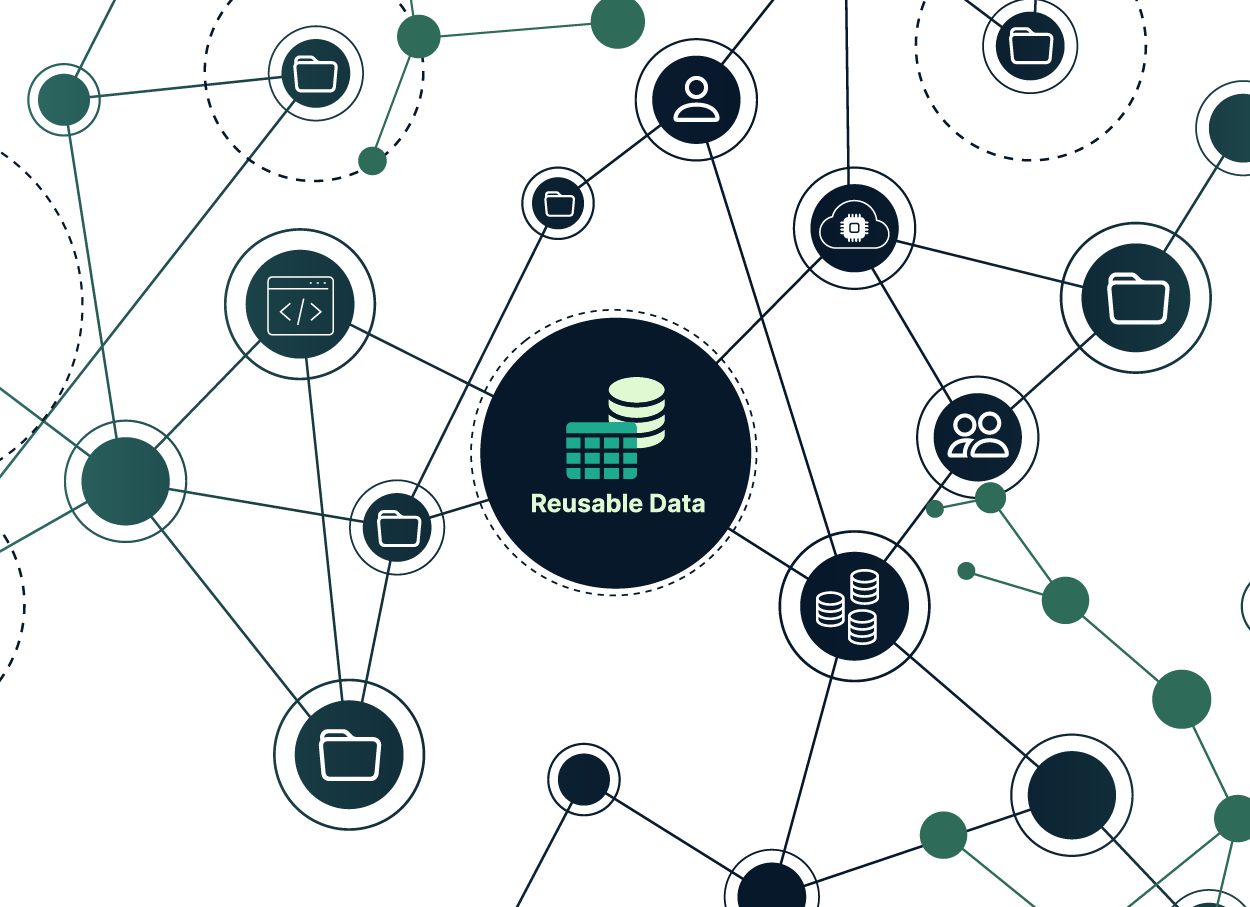
We’ve been busy behind the scenes, and now it’s time to share some of the exciting updates we’ve rolled out over our last few releases. These features are part of the Renku 2.0 beta, designed to to empower collaboration and make it easier to connect and share data, code, and compute resources. Here’s a quick tour of what’s new.
